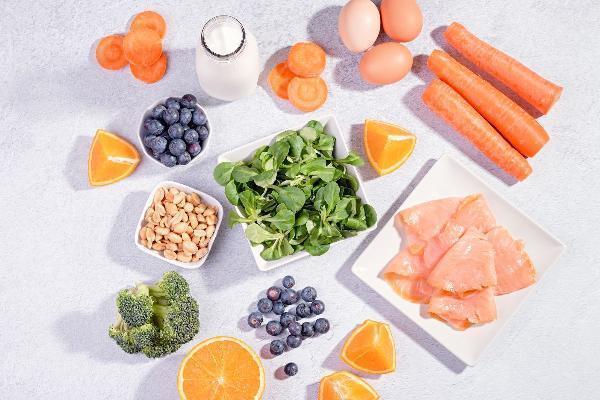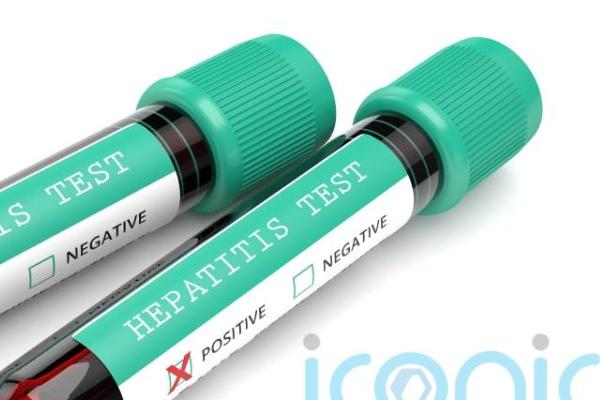Foods for Eye Health: The Ultimate Guide for Your Eyes

Strong 8k brings an ultra-HD IPTV experience to your living room and your pocket.
Foods for Eye Health: The Ultimate Guide for Your Eyes | Healthcare 360 Magazine
Maintaining good eye health is essential for overall well-being and quality of life. As we age, our eyes are susceptible to various conditions such as macular degeneration, cataracts, and dry eyes. Fortunately, a diet rich in specific nutrients can help keep your eyes healthy and potentially reduce the risk of these conditions. In this comprehensive guide, we’ll explore the best foods for eye health and the nutrients they provide.
Why Eye Health Matters
Your eyes are complex organs that require various nutrients to function properly. Good eye health can help prevent or delay the onset of conditions like:
Age-related Macular Degeneration (AMD): A leading cause of vision loss in people over 50.
Cataracts: Clouding of the eye lens that can impair vision.
Glaucoma: A group of eye conditions that can cause optic nerve damage.
Dry Eyes: A condition where your eyes don’t produce enough tears or the right quality of tears.
Incorporating specific foods into your diet can help protect your eyes and maintain good vision. Here are the key nutrients foods for eye health that support and the foods that provide them.
Key Nutrients and Foods for Eye Health
Foods for Eye Health: The Ultimate Guide for Your Eyes | Healthcare 360 Magazine
1. Vitamin A
Vitamin A is crucial for maintaining good vision. It is a component of rhodopsin, a protein in your eyes that helps you see in low-light conditions. Vitamin A also supports the functioning of the conjunctival membranes and cornea.
Sources of Vitamin A:
Carrots: Rich in beta-carotene, which your body converts into vitamin A.
Sweet Potatoes: Another excellent source of beta-carotene.
Leafy Green Vegetables: Spinach, kale, and collard greens.
Liver: One of the best sources of preformed vitamin A.
2. Vitamin C
Vitamin C is an antioxidant that helps protect your eyes from damage caused by free radicals. It also plays a role in maintaining the health of blood vessels in the eyes.
Sources of Vitamin C:
Citrus Fruits: Oranges, lemons, grapefruits, and limes.
Berries: Strawberries, blueberries, and raspberries.
Bell Peppers: Red and green varieties.
Broccoli: A good source of vitamin C.
3. Vitamin E
Vitamin E is another powerful antioxidant that protects the eyes from free radical damage. It is particularly important in preventing cataracts and age-related macular degeneration.
Sources of Vitamin E:
Nuts and Seeds: Almonds, sunflower seeds, and hazelnuts.
Leafy Greens: Spinach and kale.
Vegetable Oils: Sunflower, safflower, and wheat germ oil.
4. Omega-3 Fatty Acids
Omega-3 fatty acids, particularly DHA and EPA, are essential for maintaining the health of the retina and preventing dry eyes.
Sources of Omega-3 Fatty Acids:
Fish: Salmon, mackerel, sardines, and trout.
Flaxseeds and Chia Seeds: Plant-based sources of omega-3.
Walnuts: Another plant-based source.
5. Zinc
Zinc is a mineral that helps vitamin A create melanin, a pigment that protects the eyes. It also plays a role in maintaining the health of the retina.
Sources of Zinc:
Shellfish: Oysters are particularly high in zinc.
Meat: Beef, pork, and lamb.
Legumes: Chickpeas, lentils, and beans.
Seeds and Nuts: Pumpkin seeds and cashews.
6. Lutein and Zeaxanthin
Lutein and zeaxanthin are antioxidants found in high concentrations in the macula, a part of the retina responsible for central vision. These nutrients help filter harmful blue light and protect the eyes from oxidative damage.
Sources of Lutein and Zeaxanthin:
Leafy Greens: Kale, spinach, and collard greens.
Eggs: Particularly the yolk.
Corn: A good source of these antioxidants.
Broccoli: Contains both lutein and zeaxanthin.
Top Foods for Eye Health
Foods for Eye Health: The Ultimate Guide for Your Eyes | Healthcare 360 Magazine
Now that we’ve covered the key nutrients, let’s explore some of the best foods for eye health and how to incorporate them into your diet.
1. Carrots
Carrots are well-known for their foods for eye health benefits due to their high beta-carotene content. Beta-carotene is a type of vitamin A that helps the retina and other parts of the eye function smoothly.
How to Include Carrots in Your Diet:
Add grated carrots to salads.
Snack on baby carrots with hummus.
Incorporate carrots into soups and stews.
2. Leafy Green Vegetables
Leafy greens like spinach, kale, and collard greens are packed with lutein and zeaxanthin, as well as vitamin C. These nutrients help protect against age-related macular degeneration and cataracts.
How to Include Leafy Greens in Your Diet:
Make a green smoothie with spinach or kale.
Add greens to your sandwiches and wraps.
Sauté spinach or kale with garlic for a healthy side dish.
3. Fish
Fatty fish such as salmon, mackerel, and sardines are rich in omega-3 fatty acids. These fats are crucial for maintaining the health of the retina and preventing dry eyes.
How to Include Fish in Your Diet:
Grill or bake salmon for dinner.
Make a tuna salad for lunch.
Add sardines to salads or eat them on whole-grain crackers.
4. Citrus Fruits
Citrus fruits like oranges, lemons, and grapefruits are excellent sources of vitamin C. This antioxidant helps protect the eyes from damage and supports the health of blood vessels in the eyes.
How to Include Citrus Fruits in Your Diet:
Drink a glass of freshly squeezed orange juice.
Add lemon slices to your water.
Make a citrus salad with oranges and grapefruits.
5. Nuts and Seeds
Nuts and seeds, such as almonds and sunflower seeds, are rich in vitamin E. This nutrient helps protect the eyes from oxidative damage.
How to Include Nuts and Seeds in Your Diet:
Snack on a handful of almonds.
Add sunflower seeds to your salads.
Incorporate nuts into your baking recipes.
6. Eggs
Eggs are a great source of lutein and zeaxanthin, as well as zinc. These nutrients foods for eye health are essential for protecting the eyes and supporting overall eye health.
How to Include Eggs in Your Diet:
Make scrambled eggs or an omelet for breakfast.
Add a hard-boiled egg to your salad.
Enjoy a poached egg on whole-grain toast.
7. Broccoli
Broccoli is a nutritional powerhouse, offering a good dose of vitamin C, lutein, and zeaxanthin. These nutrients help protect the eyes from damage and maintain overall eye health.
How to Include Broccoli in Your Diet:
Steam broccoli as a side dish.
Add broccoli to stir-fries.
Incorporate broccoli into soups and casseroles.
Tips for Maintaining Eye Health
Foods for Eye Health: The Ultimate Guide for Your Eyes | Healthcare 360 Magazine
In addition to eating a diet rich in the nutrients mentioned above, here are some additional tips to help maintain good eye health:
Stay Hydrated: Drink plenty of water to keep your eyes hydrated and reduce the risk of dry eyes.
Wear Sunglasses: Protect your eyes from harmful UV rays by wearing sunglasses that block 100% of UVA and UVB rays.
Take Regular Breaks: If you spend a lot of time in front of screens, follow the 20-20-20 rule. Every 20 minutes, look at something 20 feet away for at least 20 seconds.
Get Regular Eye Exams: Regular eye exams can help detect problems early and ensure that your eyes are healthy.
Avoid Smoking: Smoking increases the risk of developing age-related eye diseases like macular degeneration and cataracts.
Conclusion
Maintaining good eye health is essential for overall well-being and quality of life. By incorporating foods rich in key nutrients like vitamin A, vitamin C, vitamin E, omega-3 fatty acids, zinc, lutein, and zeaxanthin into your diet, you can help protect your eyes and reduce the risk of developing eye-related conditions.
Make sure to include a variety of these foods in your meals, and follow the additional tips for maintaining eye health. Remember, a balanced diet and a healthy lifestyle are crucial for keeping your eyes healthy and your vision sharp.
For more information on foods for eye health, consult with a healthcare professional or a registered dietitian. They can provide personalized advice and help you create a diet plan that supports your eye health.
Find practical solutions to common challenges through our insightful articles on Healthcare 360 Magazine
Note: IndiBlogHub features both user-submitted and editorial content. We do not verify third-party contributions. Read our Disclaimer and Privacy Policyfor details.







